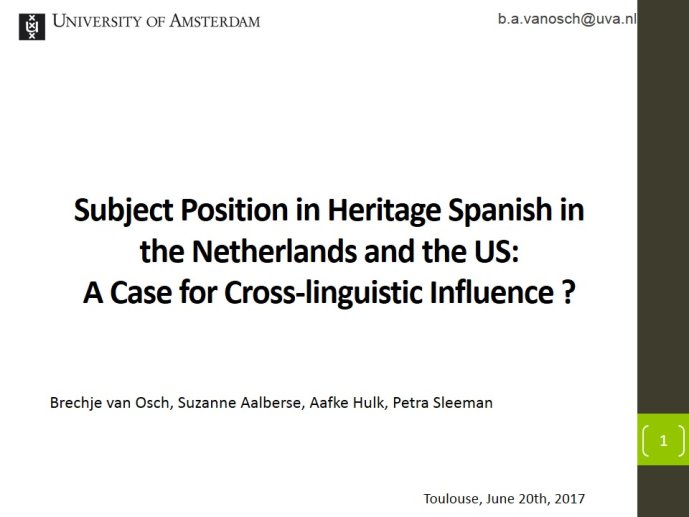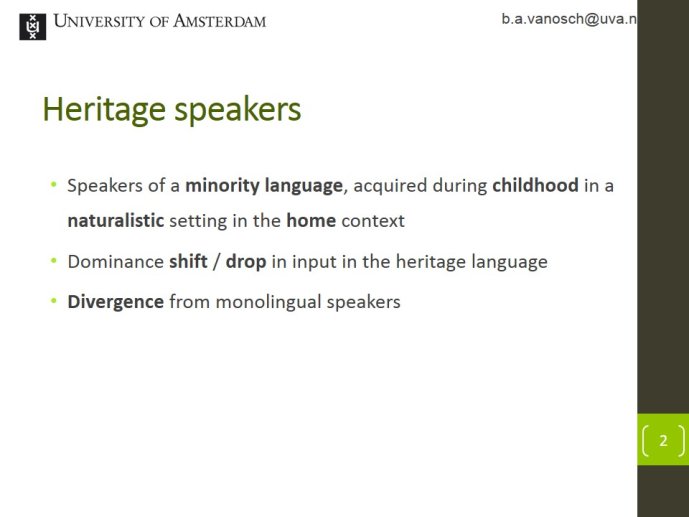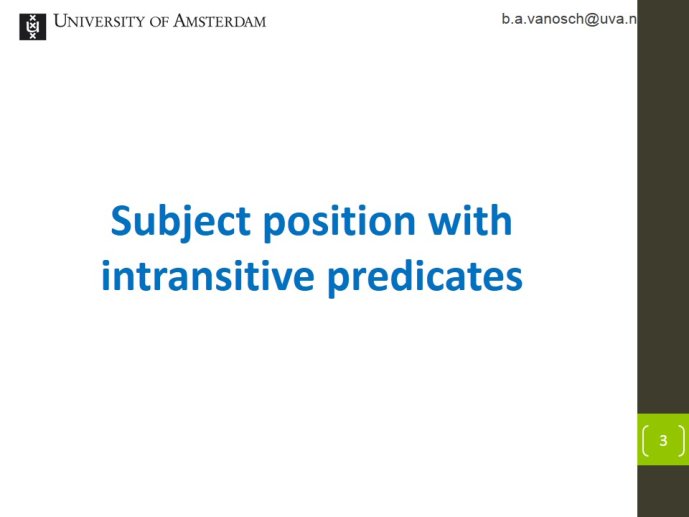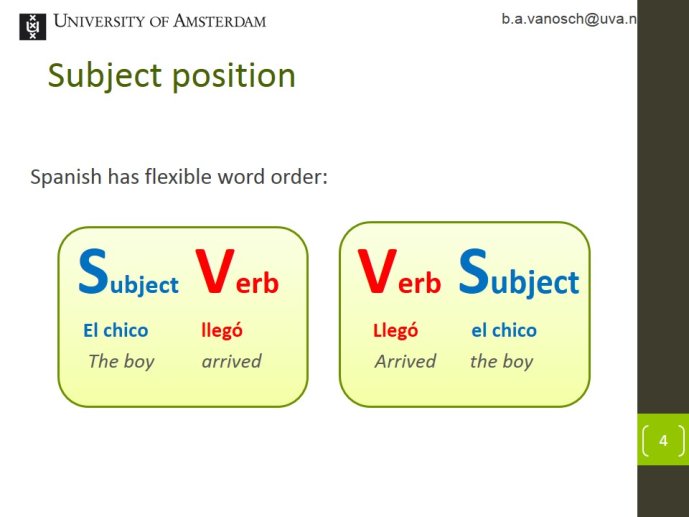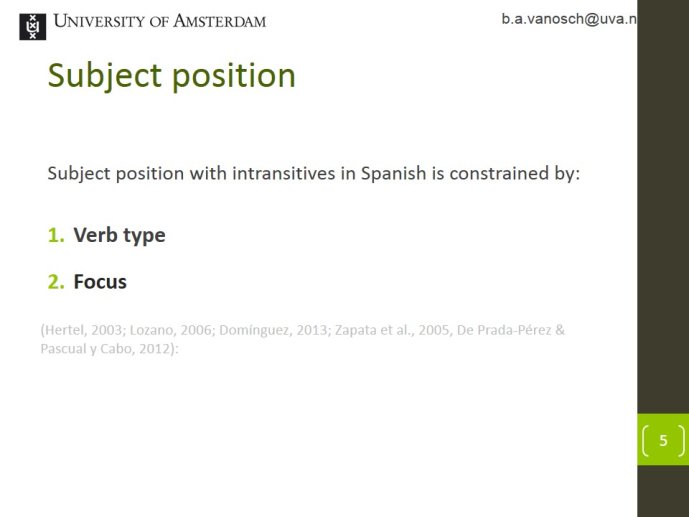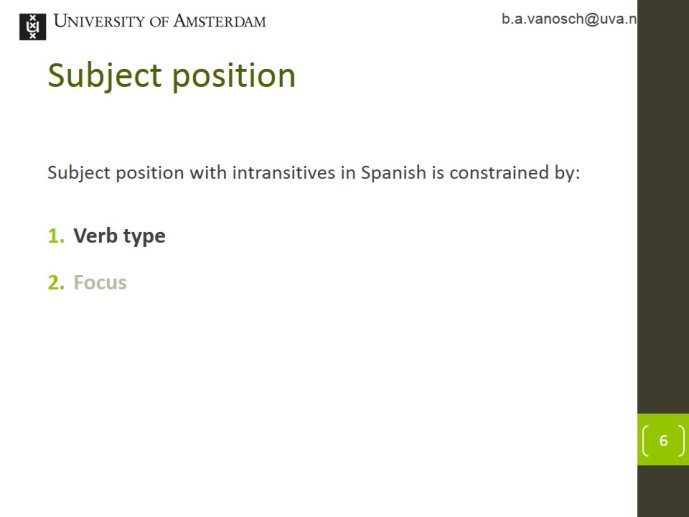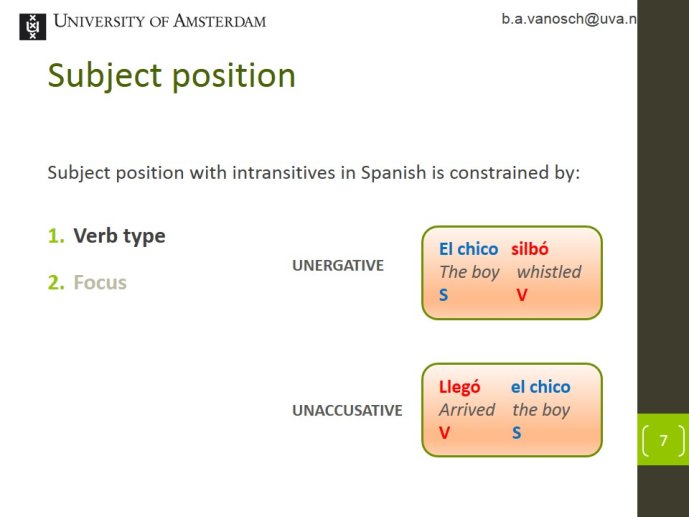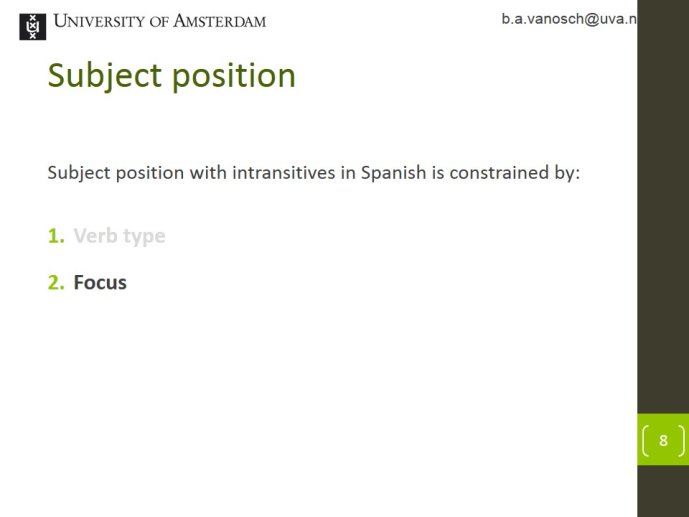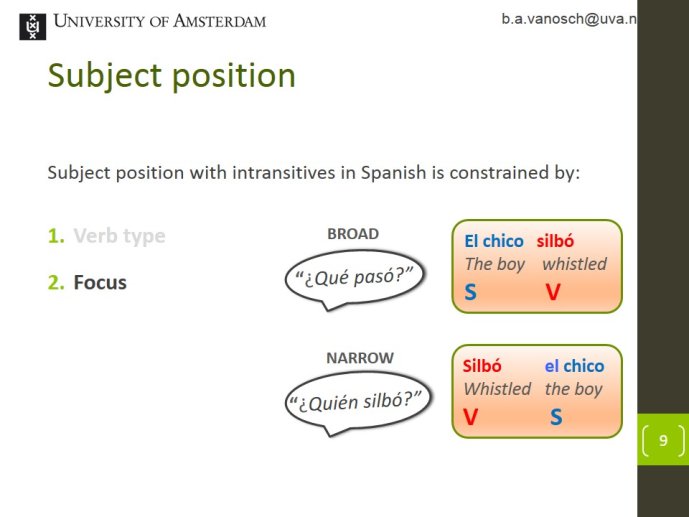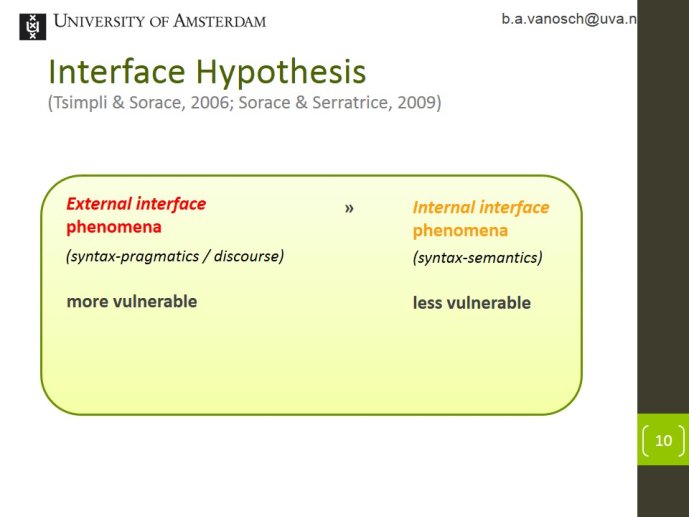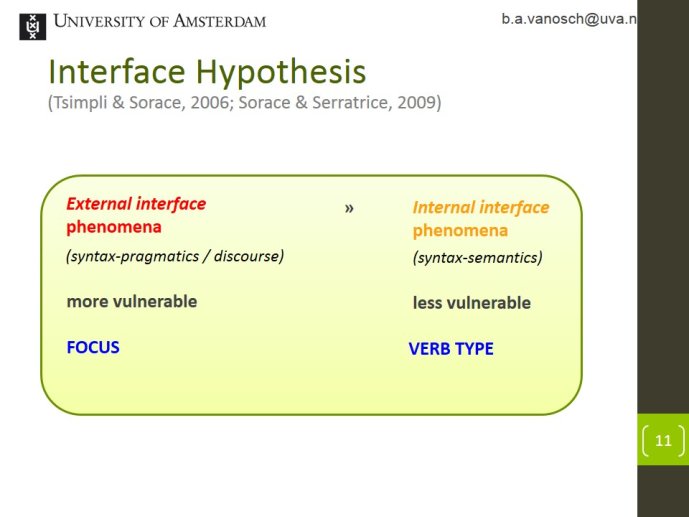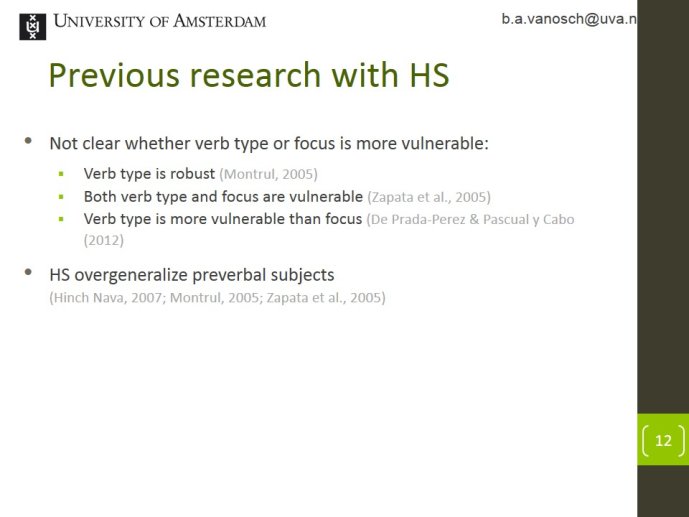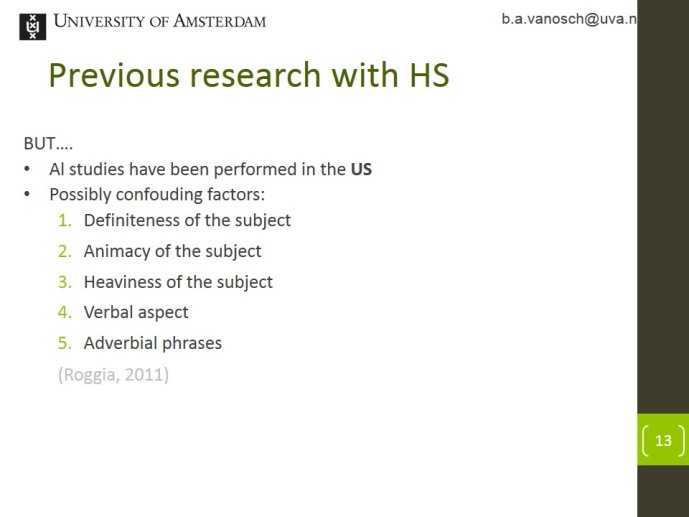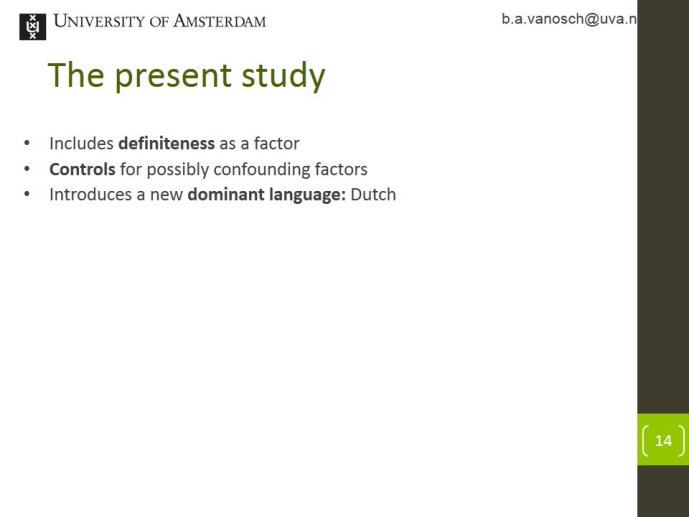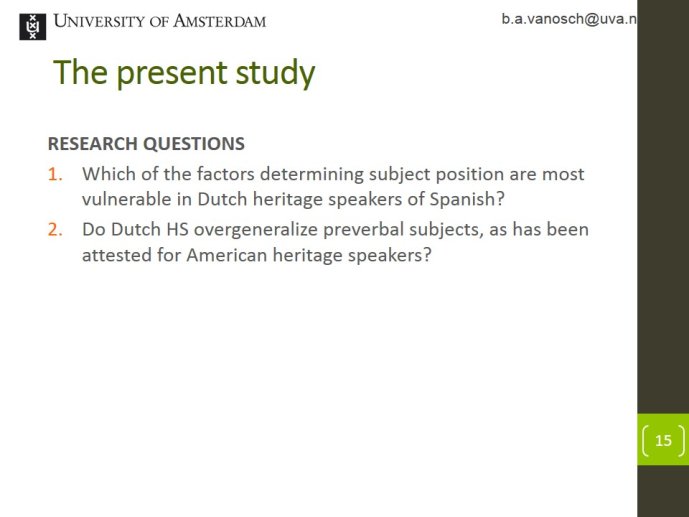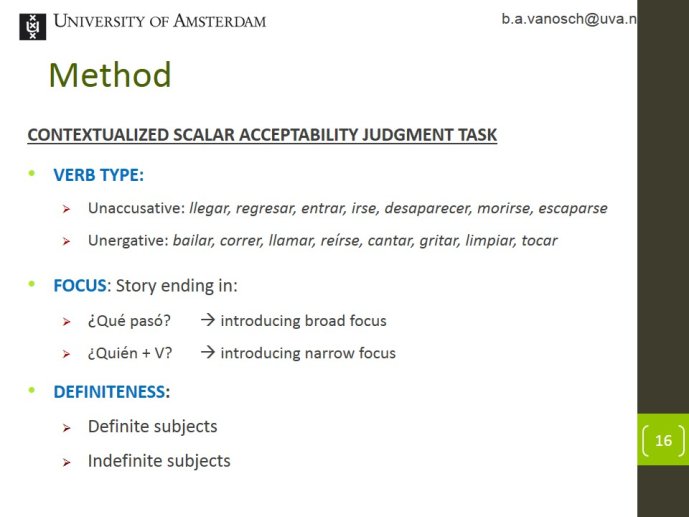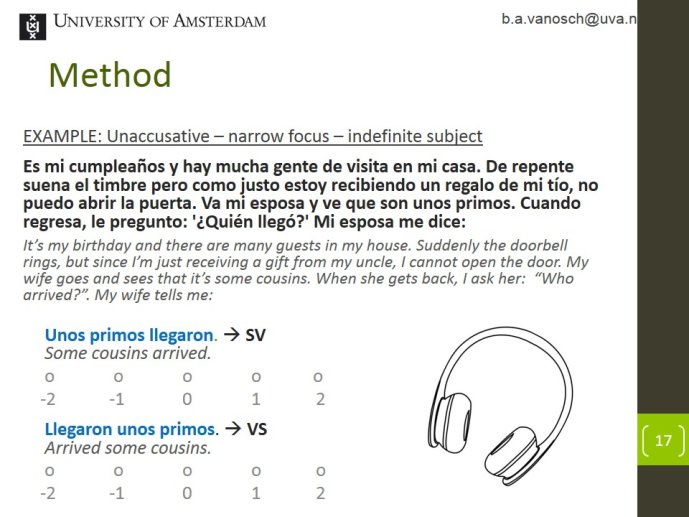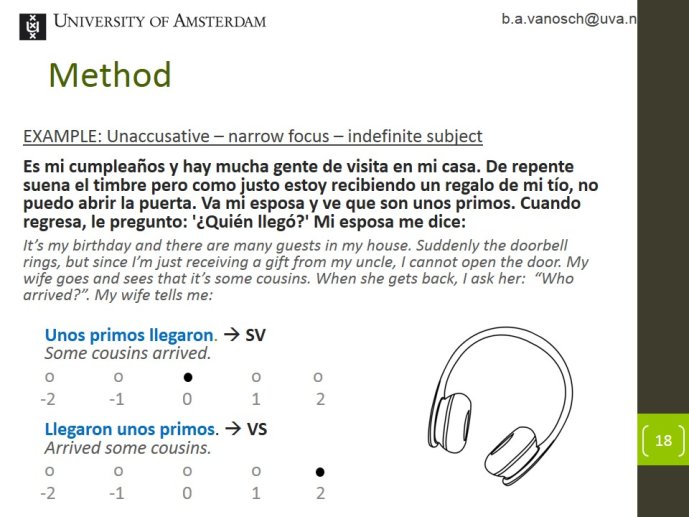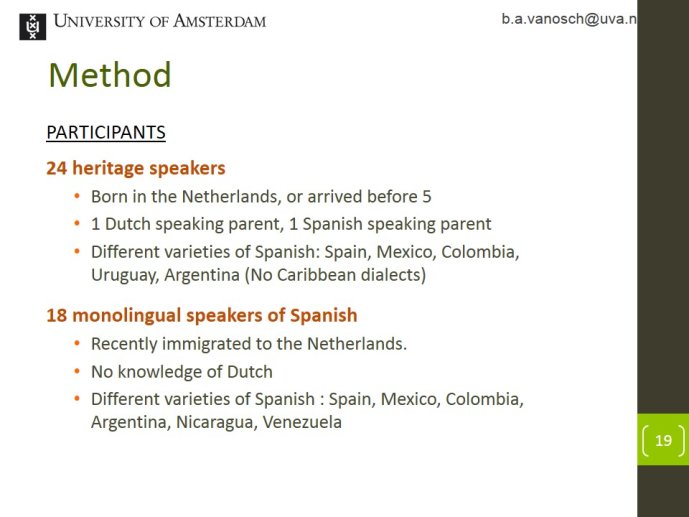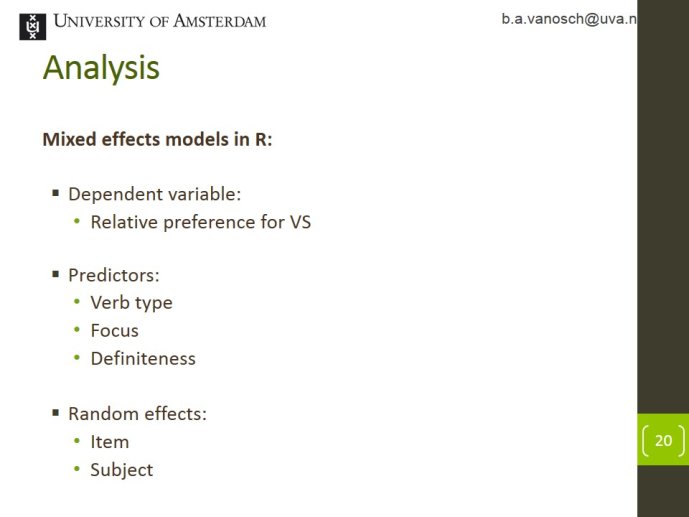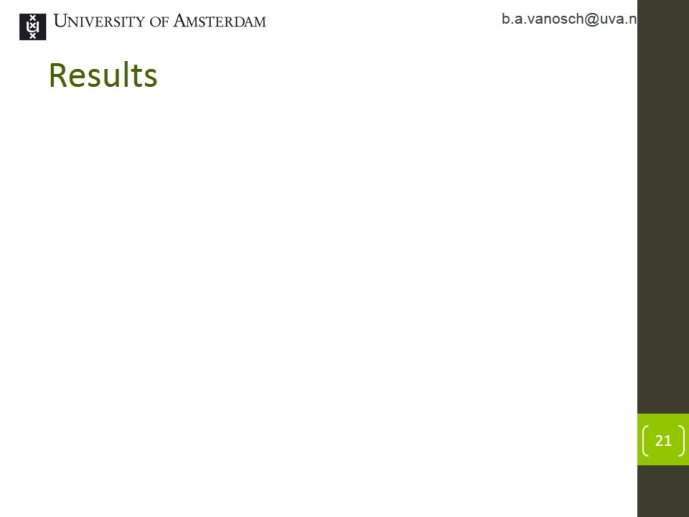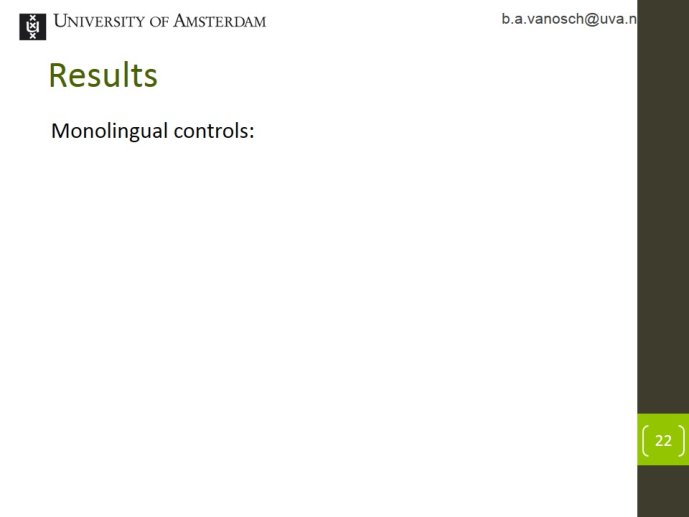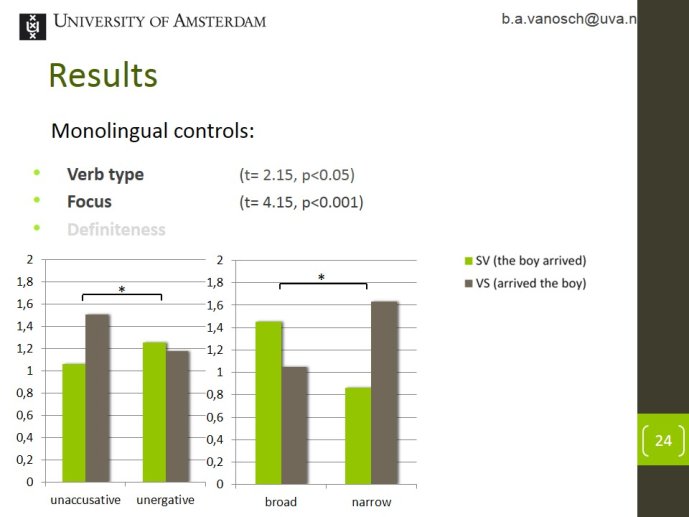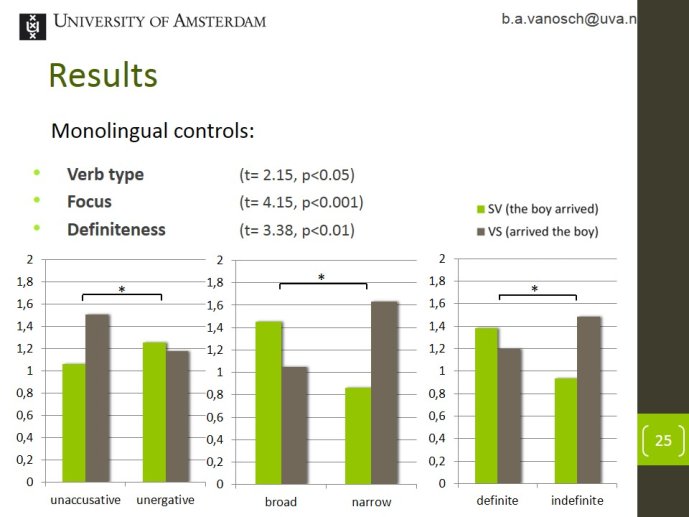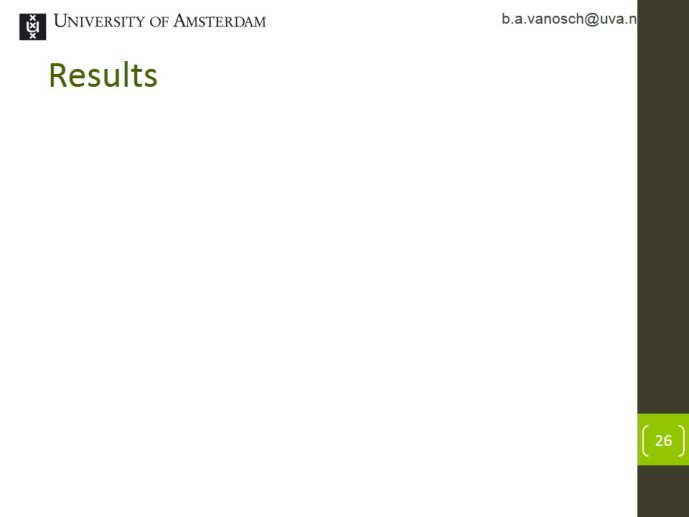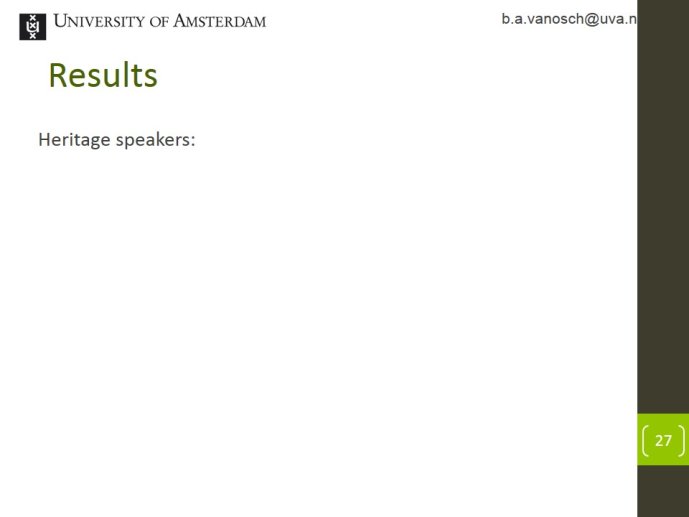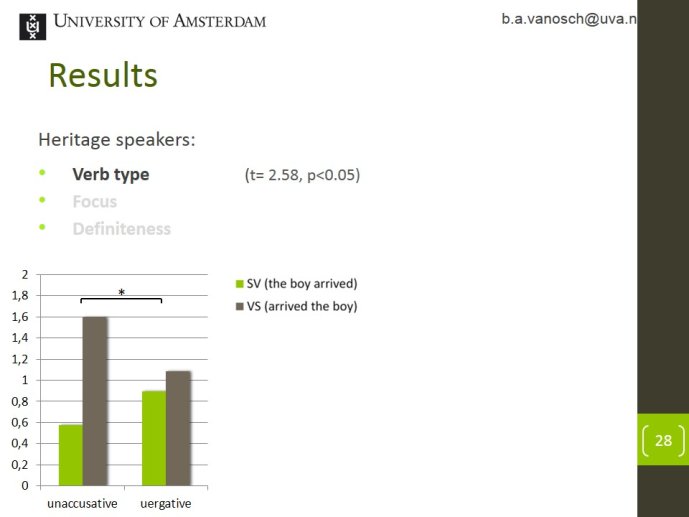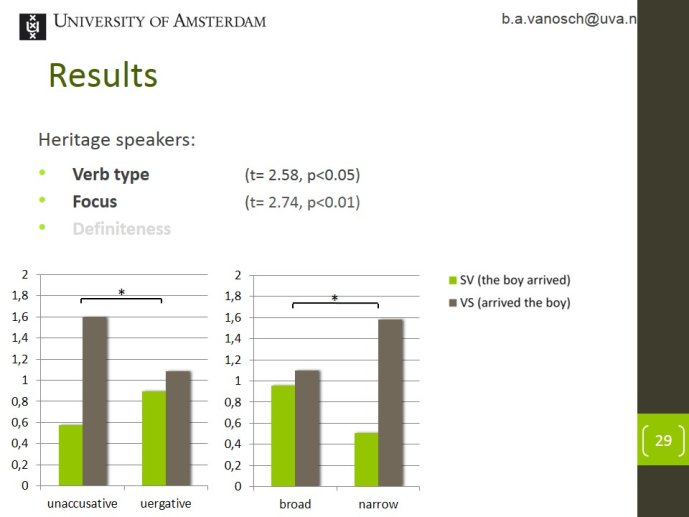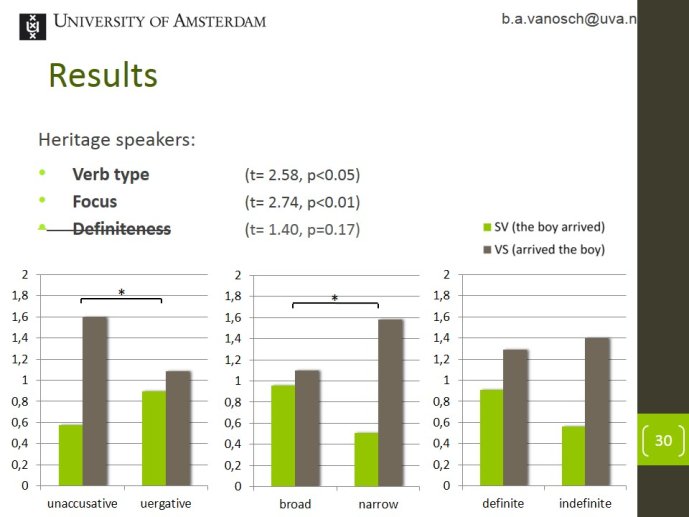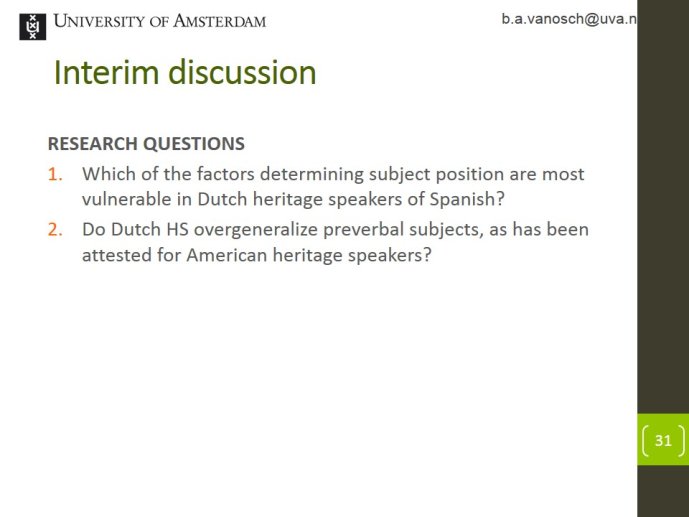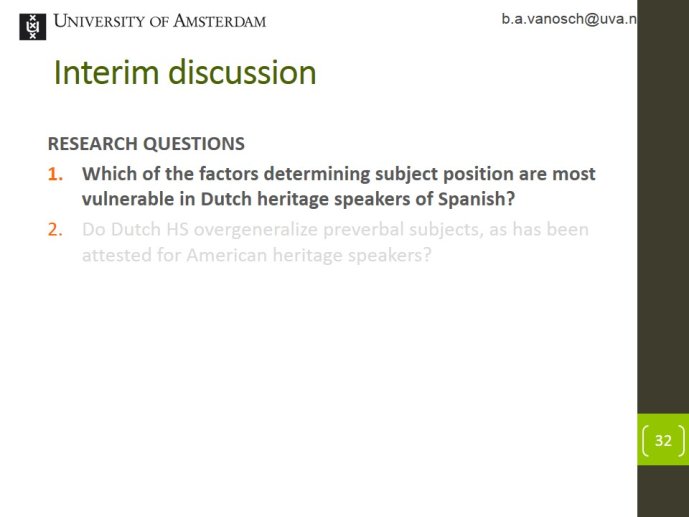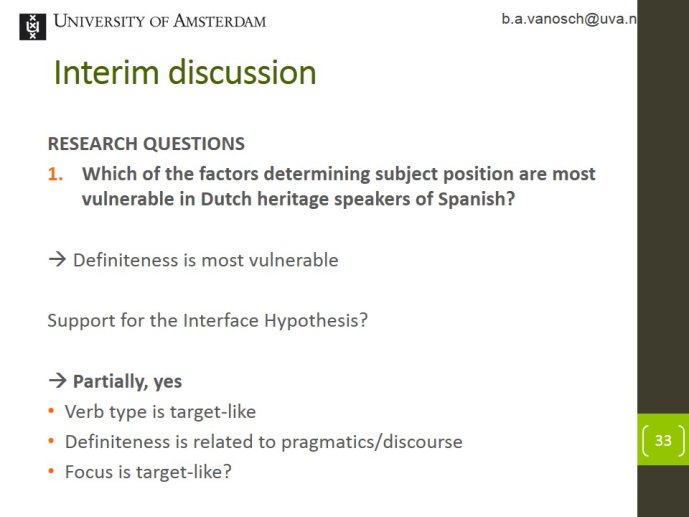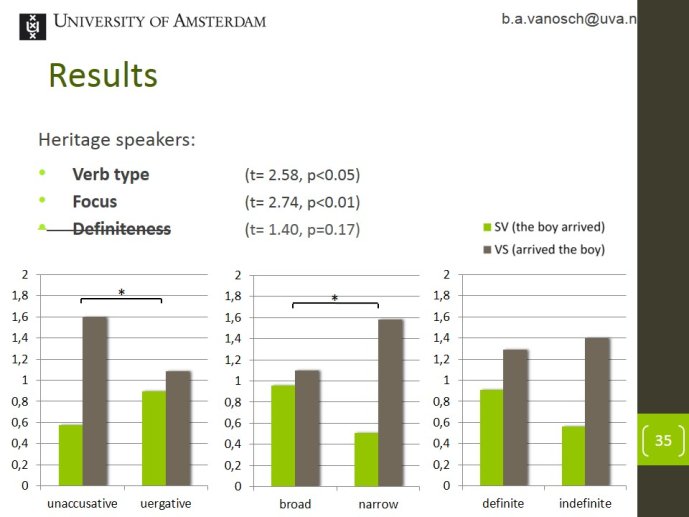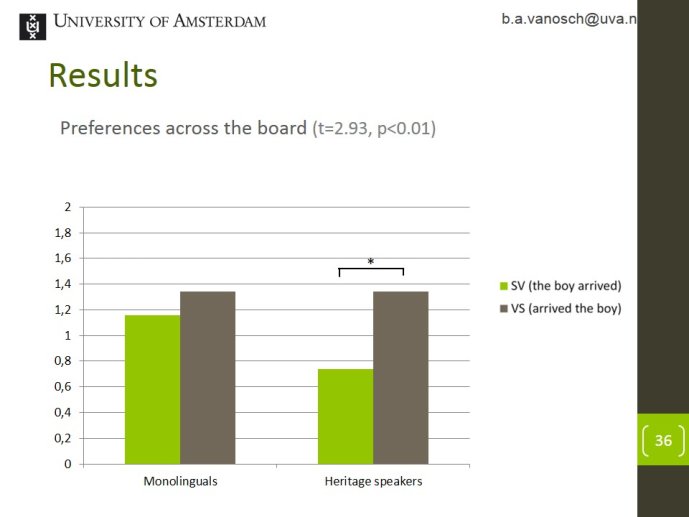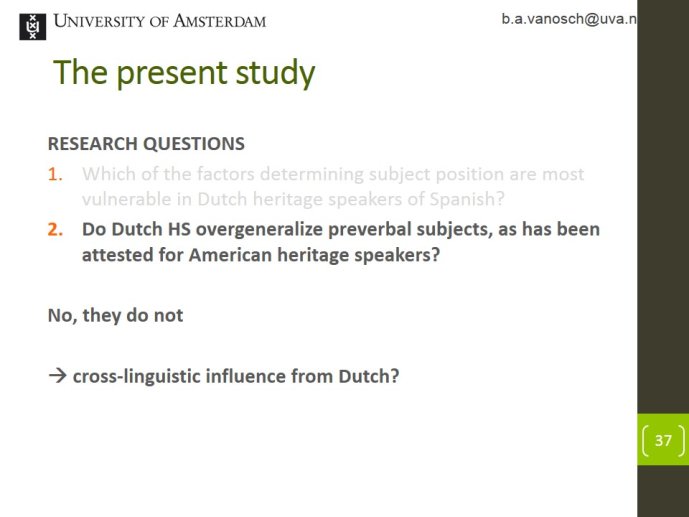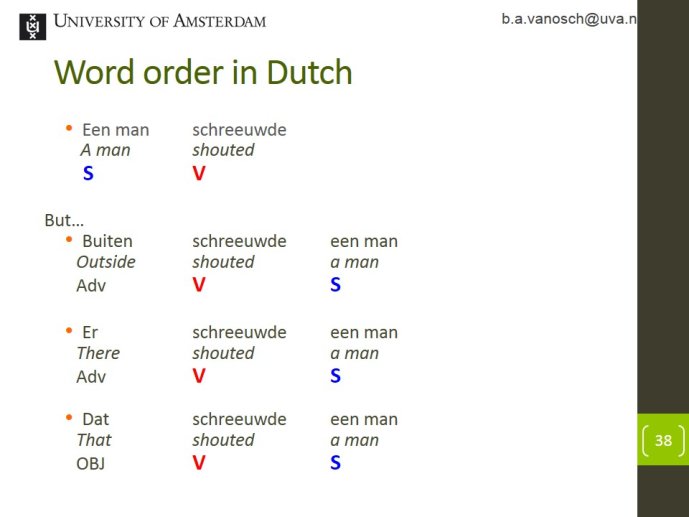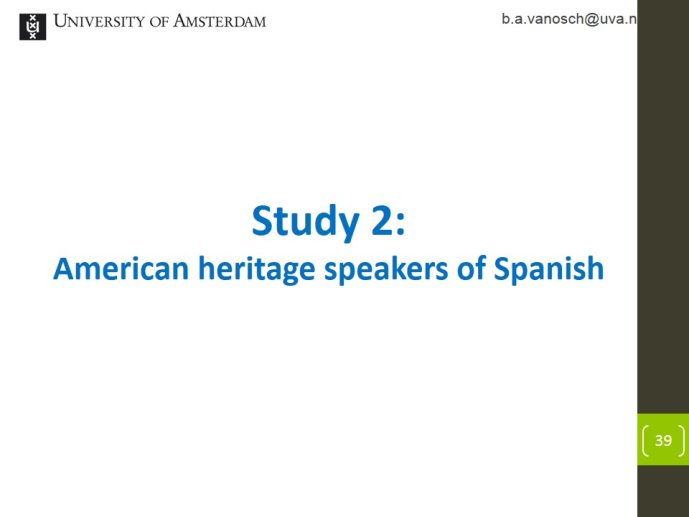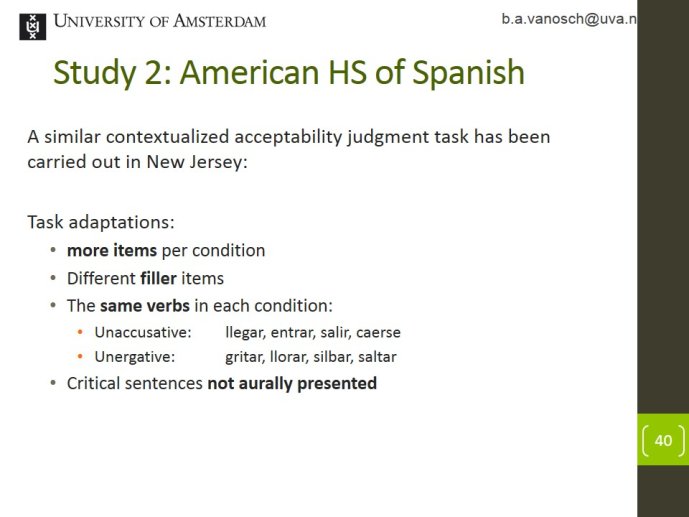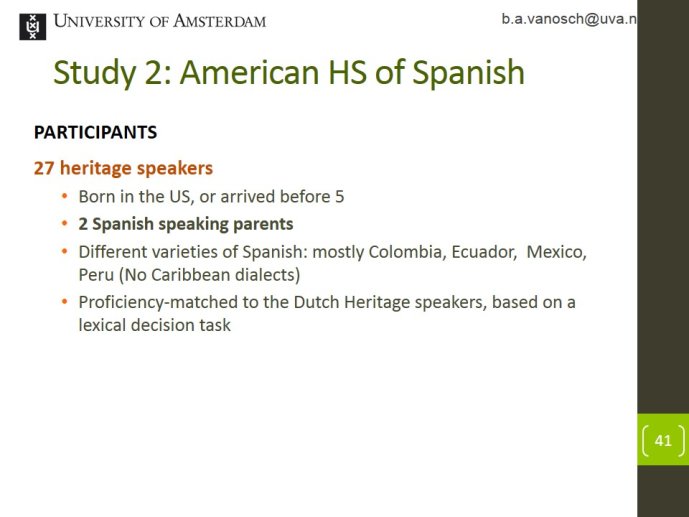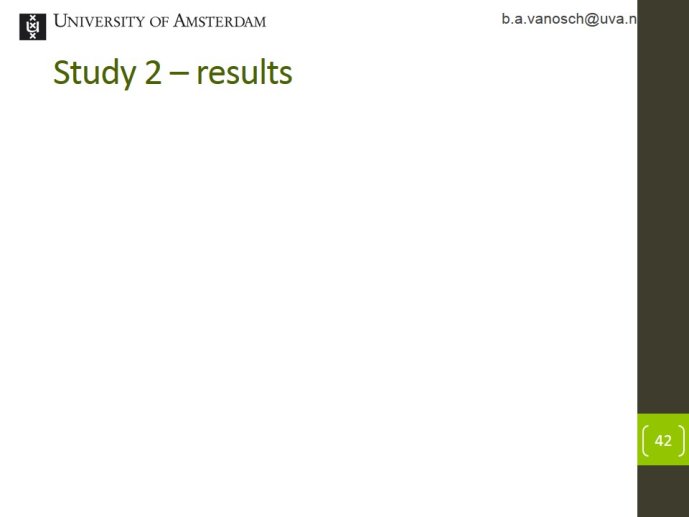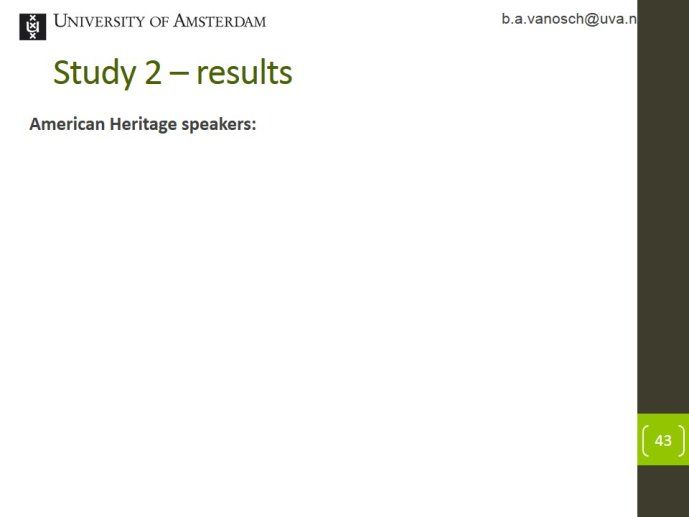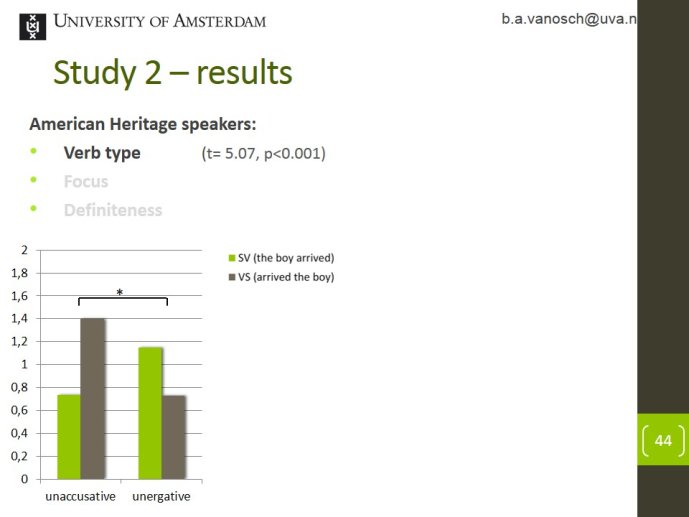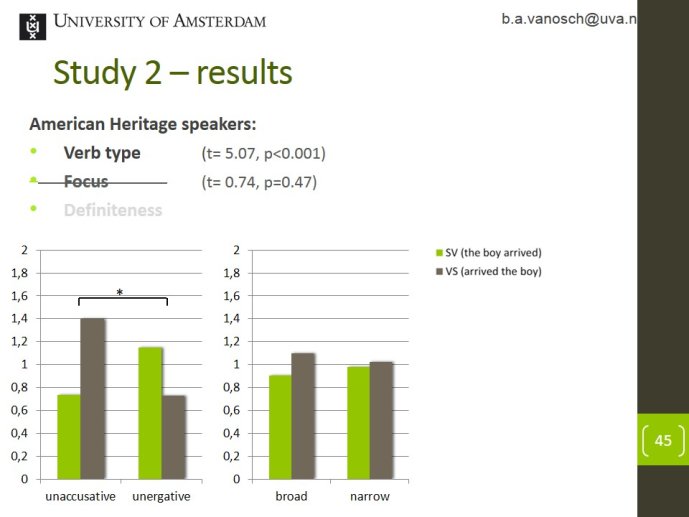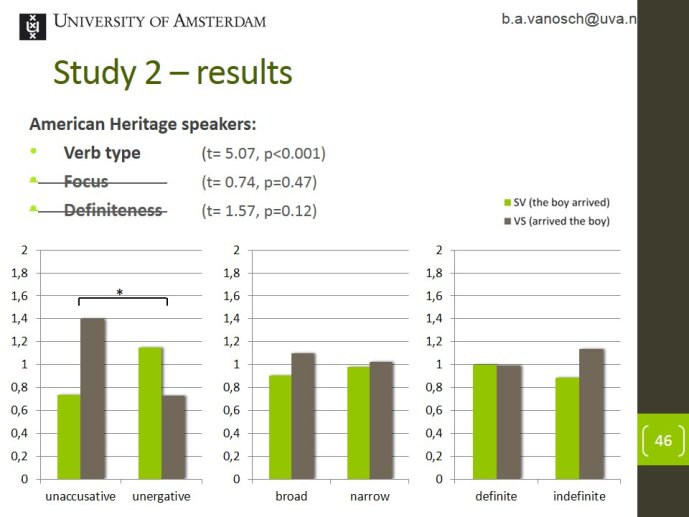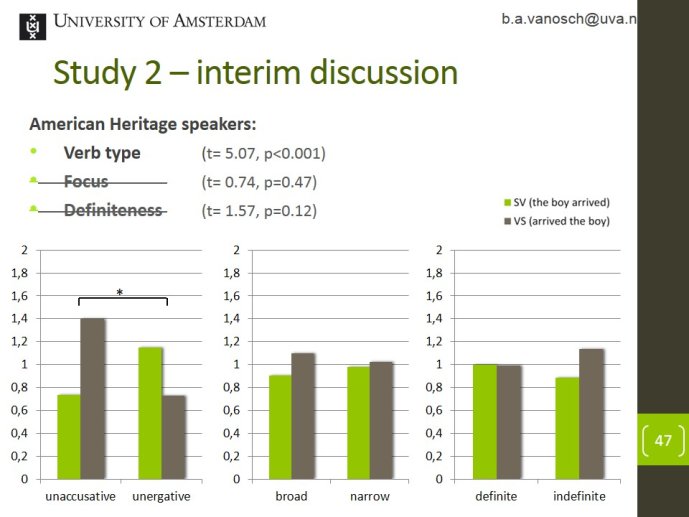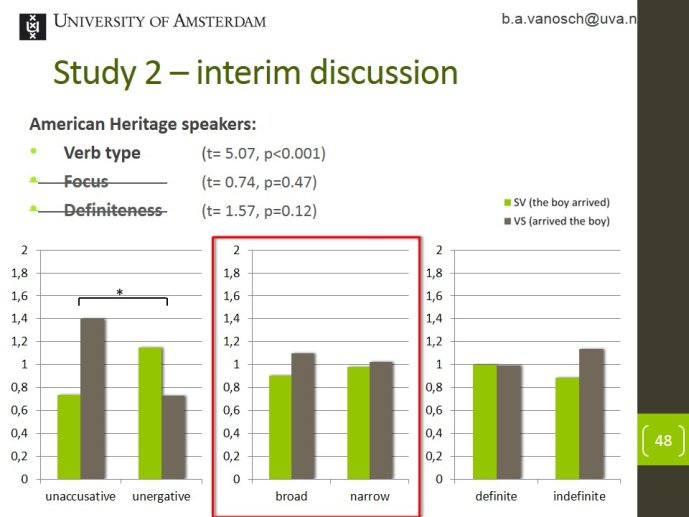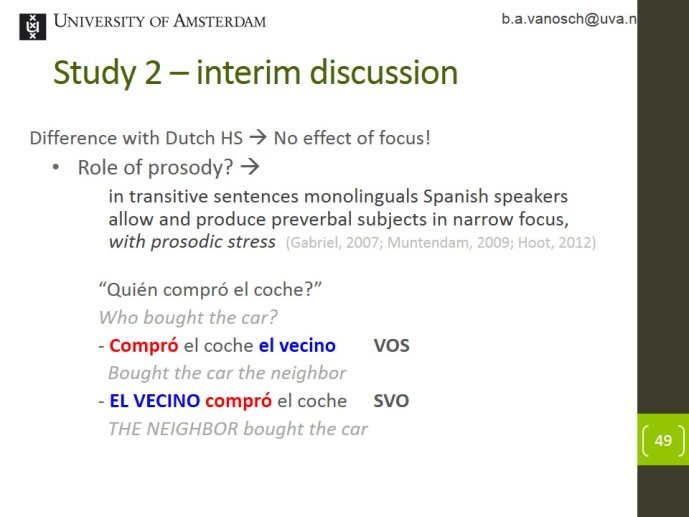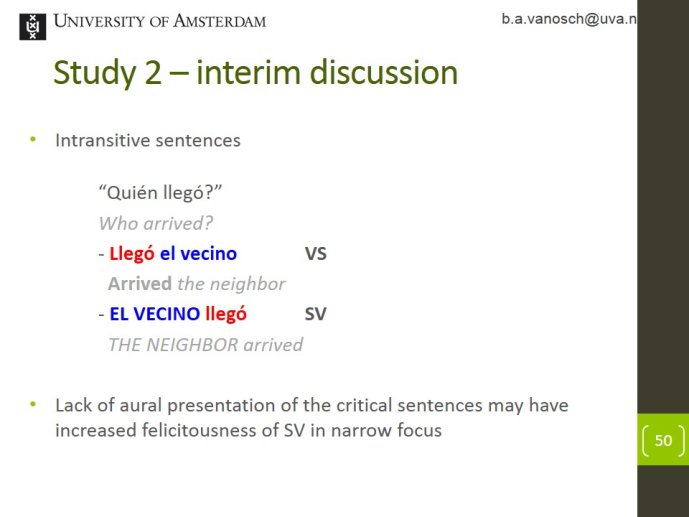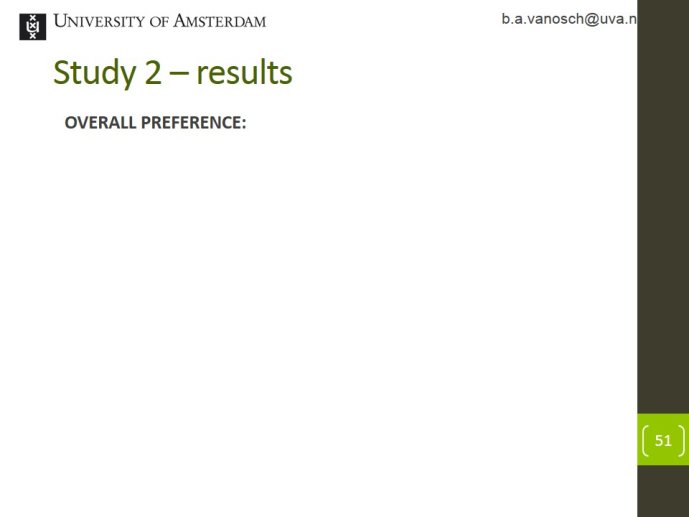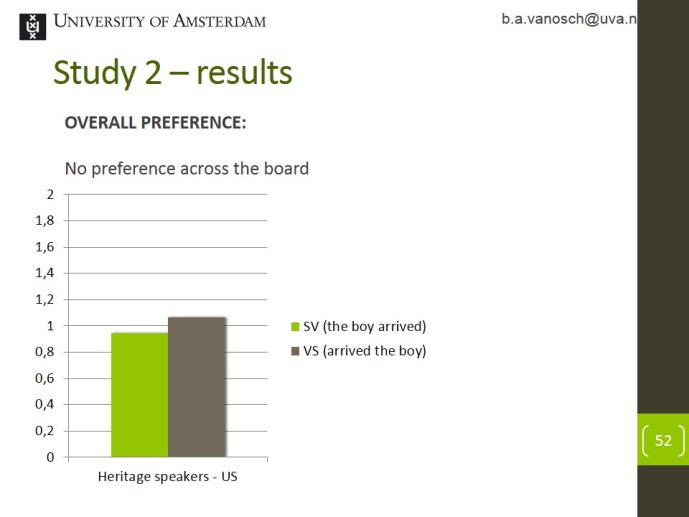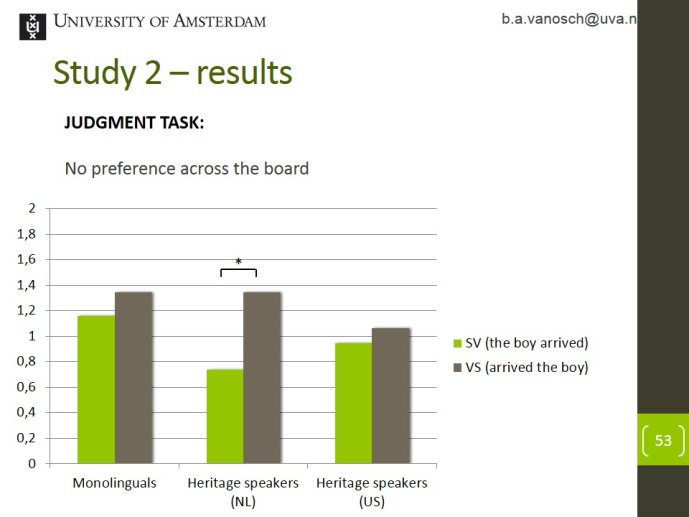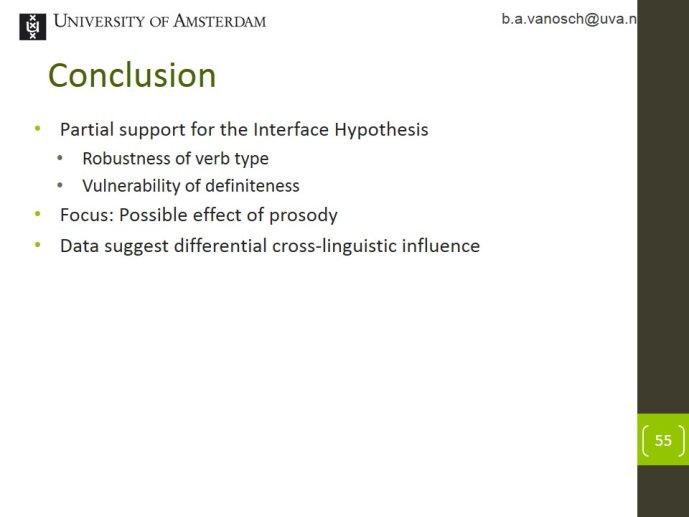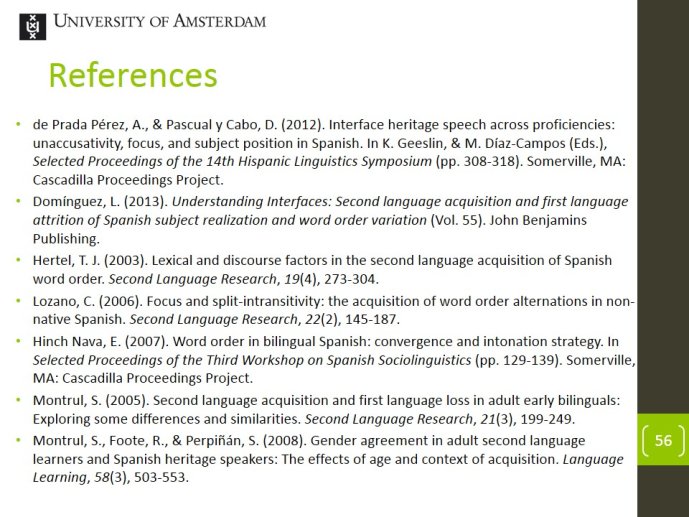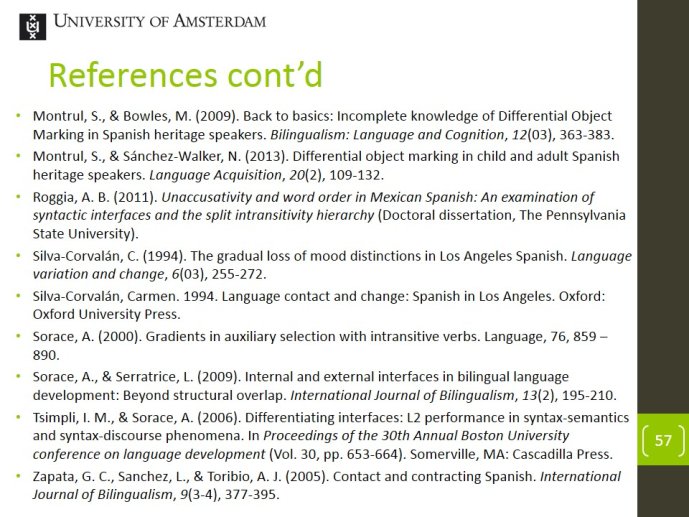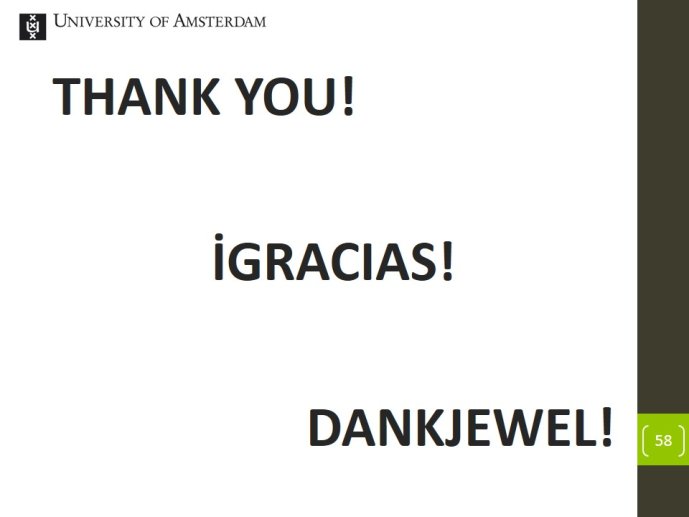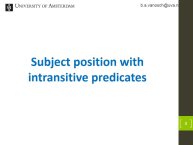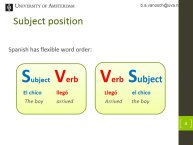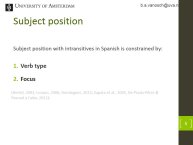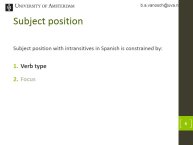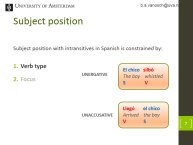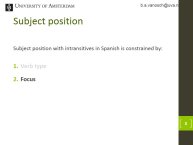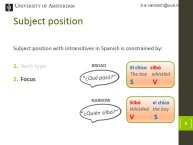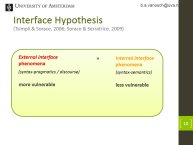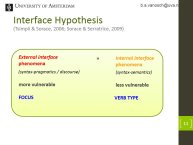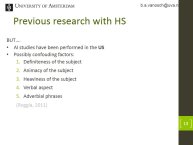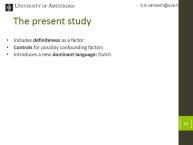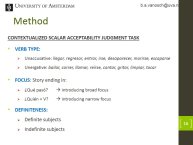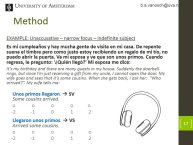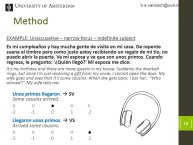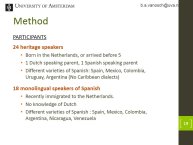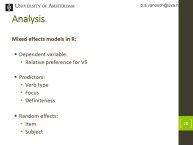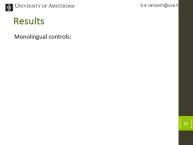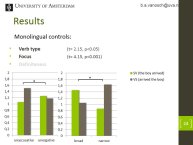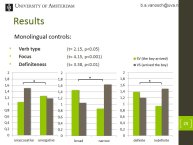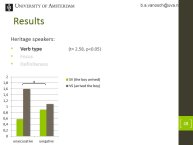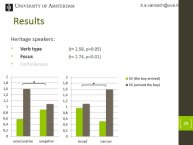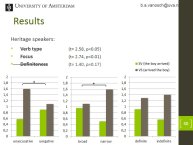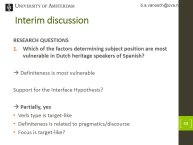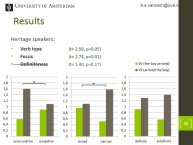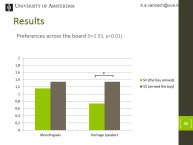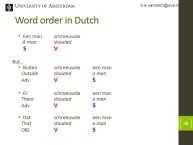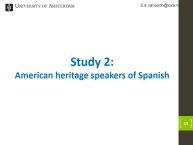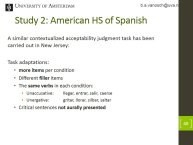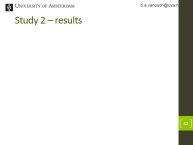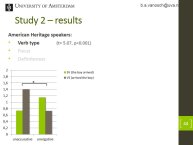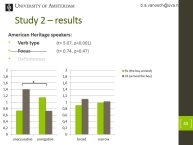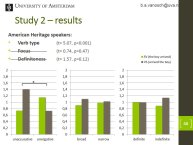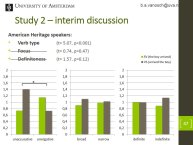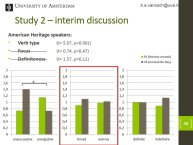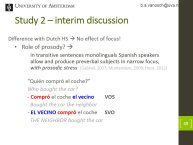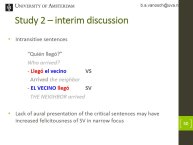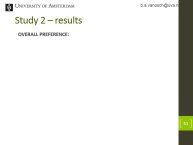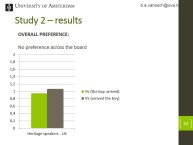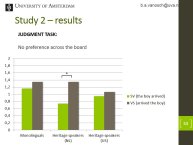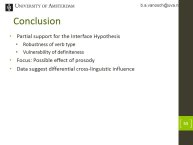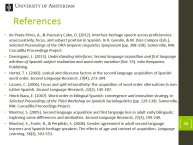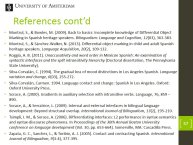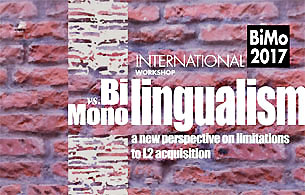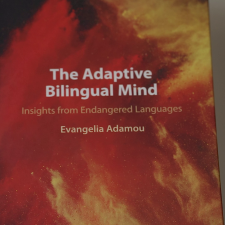Notice
Subject position in heritage Spanish in the Netherlands and the US: a case for cross-linguistic influence / Brechje van Osch
- document 1 document 2 document 3
- niveau 1 niveau 2 niveau 3
Descriptif
Subject position in heritage Spanish in the Netherlands and the US: a case for cross-linguistic influence / Brechje van Osch, in colloque "Bilingualism vs. monolingualism: a new perspective on limitations to L2 acquisition" organisé par le laboratoire Octogone-Lordat (Université Toulouse 2) sous la responsabilité de Barbara Köpke (UT2J), Holger Hopp (Technische Universität Braunschweig), Tanja Kupisch (Universität Konstanz), Université Toulouse Jean Jaurès, 19-20 juin 2017.
Whereasheritage Spanish is a popular topic of investigation in the US, much less isknown about heritage Spanish in combination with languages other than English(but see Irizarri van Suchtelen, 2016, and references there). The present studyoffers a relevant addition to the field by comparing two groups of heritagespeakers of Spanish in different countries: one group in the US and another inthe Netherlands.
Thetopic of investigation is subject position with intransitive predicates. InSpanish, both preverbal and postverbal subjects are grammatical, butfelicitousness depends on several syntactic, semantic and discourse constraints(Domínguez, 2013; Roggia, 2011). Most US based studies report that heritagespeakers tend to overgeneralize preverbal subjects compared to monolingualbaseline groups (e.g. Montrul, 2005; Zapata et al., 2005). This is notsurprising given that in English postverbal subjects are ungrammatical, exceptfor a few restricted contexts such as locative inversion (example 1). But whilecross-linguistic influence from English is a plausible explanation, one cannotrule out simplification towards the default order in Spanish as an (additional)factor. It is therefore interesting to look at another dominant language.
Dutchis a V2 second language that allows different types of constituents in thefirst position as long as the finite verb fills the second position. If thesubject is in first position, it precedes the finite verb (example 2). If adifferent constituent, such as an adverb or an object, is in first position,the subject follows the finite verb (example 3). Because Dutch allows VSorders, Dutch heritage speakers of Spanish may be expected to overgeneralizepreverbal subjects to a lesser extent than their US counterparts.
Acontextualized scalar acceptability judgment task was administered to 22heritage speakers of Spanish with Dutch as their dominant language and 18monolingual Spanish speakers. An example of a task item is shown in example 4.The results showed that the Dutch heritage speakers of Spanish overgeneralizedpostverbal, not preverbal subjects (figure 1). An adapted version of the task(the same design but different and slightly more items) was carried out with 24Spanish heritage speakers in Newark, New Jersey, with similar proficiency(based on a lexical decision task and self-ratings). These speakers did notovergeneralize either order (figure 2). Preliminary data from elicitedproduction seem to confirm these findings. The different preference patternsbetween the two groups suggest differential effects of the dominant languages,providing support for the role of cross-linguistic influence.
Thème
Documentation
Références bibliographiques
> Voir la bibliographie de Brechje van Osch à la fin de son diaporama.
Dans la même collection
-
On Qualitative Differences between Types of Language Acquisition / Jürgen Meisel
MeiselJürgen M.On Qualitative Differences between Types of Language Acquisition / Jürgen Meisel, in colloque "Bilingualism vs. monolingualism: a new perspective on limitations to L2 acquisition" organisé par le
-
Monolingual and multilingual learners of French. What are the effects of language background on spe…
BontempsMarieMonolingual and multilingual learners of French. What are the effects of language background on spelling? / Marie Bontemps
-
Attrition and (incomplete) acquisition of Italian answering strategies / Irene Caloi
Attrition and (incomplete) acquisition of Italian answering strategies / Irene Caloi, in colloque "Bilingualism vs. monolingualism: a new perspective on limitations to L2 acquisition" organisé par
-
Do temporarily induced code-switching modes alternate executive performance in late sequential bili…
Do temporarily induced code-switching modes alternate executive performance in late sequential bilinguals?
-
Processing variability in L2 learning: insights from articulatory training / Natalia Kartushina, Cl…
Processing variability in L2 learning: insights from articulatory training / Natalia Kartushina, Clara Martin
-
Age-related effects on language control and executive control: a behavioral-electrophysiological in…
MassaÉmilieAge-related effects on language control and executive control: a behavioral-electrophysiological investigation / Émilie Massa
-
Language, Development and the Bilingual Brain / Arturo E. Hernandez
HernandezArturo E.Language, Development and the Bilingual Brain / Arturo E. Hernandez, in colloque "Bilingualism vs. monolingualism: a new perspective on limitations to L2 acquisition" organisé par le laboratoire
-
Trilingual effects at the microstructure and macrostructure levels in children’s narratives / Mihae…
PirvulescuMihaelaTrilingual effects at the microstructure and macrostructure levels in children’s narratives / Mihaela Pirvulescu, in colloque "Bilingualism vs. monolingualism: a new perspective on limitations to L2
-
Language Processing in Bilinguals: Distinguishing Early Sequential from Simultaneous / Laura Sabour…
SabourinLauraLanguage Processing in Bilinguals: Distinguishing Early Sequential from Simultaneous / Laura Sabourin, Santa Vinerte, in colloque "Bilingualism vs. monolingualism: a new perspective on limitations to
-
Implicit causality as a predictive cue in child L1 and adult L2 processing of German: Evidence from…
Implicit causality as a predictive cue in child L1 and adult L2 processing of German: Evidence from visual-world eyetracking / Judith Schlenter
-
Cross-linguistic influence at the feature-level ? Evidence from Dutch-German bilingual preschoolers…
Cross-linguistic influence at the feature-level ? Evidence from Dutch-German bilingual preschoolers. How bilinguals are more monolingual-like than assumed / Antje Stoehr
-
Can French-English bilinguals process verb-particle constructions in a native-like manner? A self-p…
Can French-English bilinguals process verb-particle constructions in a native-like manner? A self-paced reading study / Alexandre Herbay, in colloque "Bilingualism vs. monolingualism: a new
Sur le même thème
-
The Adaptive Bilingual Mind
AdamouEvangeliaLa chercheuse Evangelia Adamou (LACITO) présente son ouvrage "The Adaptive Bilingual Mind" (2021, Cambridge University Press).
-
On Qualitative Differences between Types of Language Acquisition / Jürgen Meisel
MeiselJürgen M.On Qualitative Differences between Types of Language Acquisition / Jürgen Meisel, in colloque "Bilingualism vs. monolingualism: a new perspective on limitations to L2 acquisition" organisé par le
-
Attrition and (incomplete) acquisition of Italian answering strategies / Irene Caloi
Attrition and (incomplete) acquisition of Italian answering strategies / Irene Caloi, in colloque "Bilingualism vs. monolingualism: a new perspective on limitations to L2 acquisition" organisé par
-
Do temporarily induced code-switching modes alternate executive performance in late sequential bili…
Do temporarily induced code-switching modes alternate executive performance in late sequential bilinguals?
-
Processing variability in L2 learning: insights from articulatory training / Natalia Kartushina, Cl…
Processing variability in L2 learning: insights from articulatory training / Natalia Kartushina, Clara Martin
-
Language, Development and the Bilingual Brain / Arturo E. Hernandez
HernandezArturo E.Language, Development and the Bilingual Brain / Arturo E. Hernandez, in colloque "Bilingualism vs. monolingualism: a new perspective on limitations to L2 acquisition" organisé par le laboratoire
-
Language Processing in Bilinguals: Distinguishing Early Sequential from Simultaneous / Laura Sabour…
SabourinLauraLanguage Processing in Bilinguals: Distinguishing Early Sequential from Simultaneous / Laura Sabourin, Santa Vinerte, in colloque "Bilingualism vs. monolingualism: a new perspective on limitations to
-
Implicit causality as a predictive cue in child L1 and adult L2 processing of German: Evidence from…
Implicit causality as a predictive cue in child L1 and adult L2 processing of German: Evidence from visual-world eyetracking / Judith Schlenter
-
Can French-English bilinguals process verb-particle constructions in a native-like manner? A self-p…
Can French-English bilinguals process verb-particle constructions in a native-like manner? A self-paced reading study / Alexandre Herbay, in colloque "Bilingualism vs. monolingualism: a new
-
Transfer and derivational complexity in the wh-movement of heritage speakers and L2 learners: A bid…
Transfer and derivational complexity in the wh-movement of heritage speakers and L2 learners: A bidirectional study / Holger Hopp, in colloque "Bilingualism vs. monolingualism: a new perspective on
-
Bilinguismes et compliance phonique
JEP-TALN-RECITAL 2016 - Vendredi 8 juillet 2016 Session commune JEP/TALN 3 Bilinguismes et compliance phonique Marie Philippart de Foy, Véronique Delvaux, Kathy Huet, Myriam Piccaluga, Rima Rabeh and
-
Les catégories grammaticales dans la construction du bilinguisme
LauneyMichelLes catégories grammaticales dans la construction du bilinguisme (avec focus sur la catégorie de la personne

